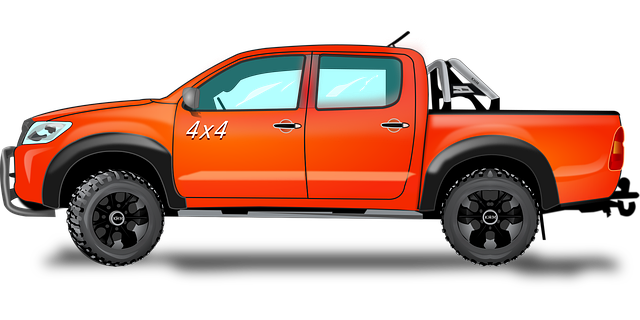Brownsville Fleet prioritizes safety and efficiency in truck steering repair with the essential use of recovery straps. These specialized ropes/belts provide leverage for extracting and towing damaged vehicles, minimizing emergency downtime. High-tenacity materials ensure strength during heavy tasks like steering repairs, tire changes, or extrication. Regular maintenance and timely replacement are critical for optimal performance and safety, as worn-out straps pose hazards. By investing in a diverse range of recovery straps, Brownsville Fleet ensures swift issue resolution and maintains the lifespan of critical vehicle components.
“Discover the essential component revolutionizing vehicle recovery: recovery straps. This comprehensive guide, ‘Understanding Recovery Straps,’ explores their critical role in Brownsville fleet and truck steering repair. From diverse types tailored for specific applications to maintenance tips for optimal performance, we demystify these sturdy tools. Learn how regular replacement ensures safe and efficient towing, especially crucial for demanding Brownsville trucking operations. Optimize your fleet’s recovery capabilities with our expert insights.”
- Understanding Recovery Straps: A Comprehensive Overview
- Brownsville Fleet and Truck Steering Repair: The Role of Recovery Straps
- Types of Recovery Straps and Their Applications
- Maintaining and Replacing Recovery Straps for Optimal Performance
Understanding Recovery Straps: A Comprehensive Overview

Recovery straps are essential tools for any fleet, especially those involved in heavy-duty operations like the Brownsville fleet. These sturdy ropes or belts serve as a crucial safety net, facilitating the rescue and recovery of vehicles that have encountered challenges on the road. Whether it’s a stuck tractor-trailer or a damaged car, recovery straps provide the necessary leverage and support to tug and tow with precision and safety.
In the context of truck steering repair, recovery straps play a significant role in maintaining fleet efficiency. They enable quick response times during emergencies, minimizing downtime for vehicles. By employing these versatile tools, fleet managers can effectively navigate through various road conditions, ensuring the safety of their drivers and the integrity of their vehicles.
Brownsville Fleet and Truck Steering Repair: The Role of Recovery Straps

Brownsville Fleet and Truck Steering Repair rely heavily on well-maintained recovery straps for their operations. These specialized straps play a crucial role in ensuring the safety and efficiency of truck steering systems, which are integral to navigating heavy vehicles. When a truck’s steering experiences issues, recovery straps become essential tools for stabilization and repair. They provide a secure point of attachment, allowing mechanics to safely support and manipulate the vehicle during troubleshooting and adjustments.
For instance, when a Brownsville Fleet truck suffers a steering problem, recovery straps enable technicians to hold the wheels in place while they inspect and fix components like tie rods, ball joints, or power steering pumps. By minimizing movement and providing stability, these straps facilitate precise repairs, ultimately extending the lifespan of the vehicle’s steering system. Thus, maintaining and using recovery straps effectively is a critical aspect of Brownsville Fleet’s truck steering repair process.
Types of Recovery Straps and Their Applications

Recovery straps come in various types, each designed for specific applications and purposes, especially in the automotive sector. One notable area where they are put to use is in truck steering repair, particularly among Brownsville fleet operators. For instance, heavy-duty recovery straps made from high-tenacity nylon or polypropylene are ideal for towing and lifting large vehicles like trucks. These robust straps can withstand significant strain without compromising strength, making them a staple in fleet maintenance.
When it comes to fleet management, having the right recovery strap on hand is crucial for addressing mechanical issues swiftly. Whether it’s assisting in steering repair, changing flat tires, or extricating a vehicle from challenging terrain, the appropriate strap can make all the difference. Brownsville fleet managers often invest in a range of straps, including those suitable for winching, loading, and general-purpose use, ensuring their vehicles remain operational and safe on the road.
Maintaining and Replacing Recovery Straps for Optimal Performance

Regular maintenance and timely replacement are key to ensuring your recovery straps function optimally, especially for those in the Brownsville fleet truck steering repair sector. These straps undergo significant stress during heavy-duty operations, making them susceptible to wear and tear over time. Regular visual inspections can help identify any signs of damage, such as cracks, fraying, or reduced elasticity. It’s crucial to follow the manufacturer’s guidelines for maintenance intervals, which often include cleaning, lubricating, and tension checks.
Replacement should be considered when straps no longer meet safety standards. Worn-out recovery straps can fail under extreme pressure, leading to potential hazards. Many industries have specific requirements for replacement intervals based on usage and environmental factors. For instance, those in the trucking sector may need to replace their straps more frequently than those used in less demanding applications. Staying on top of these maintenance practices not only enhances safety but also guarantees the best performance from your recovery equipment.
In summary, recovery straps play a pivotal role in Brownsville fleet and truck steering repair, ensuring optimal performance and safety. Understanding their various types and applications, along with proper maintenance and replacement practices, is essential for fleet managers and mechanics alike. By prioritizing these key aspects, you can enhance the reliability of your vehicles and minimize downtime, ultimately contributing to more efficient operations on the road.



